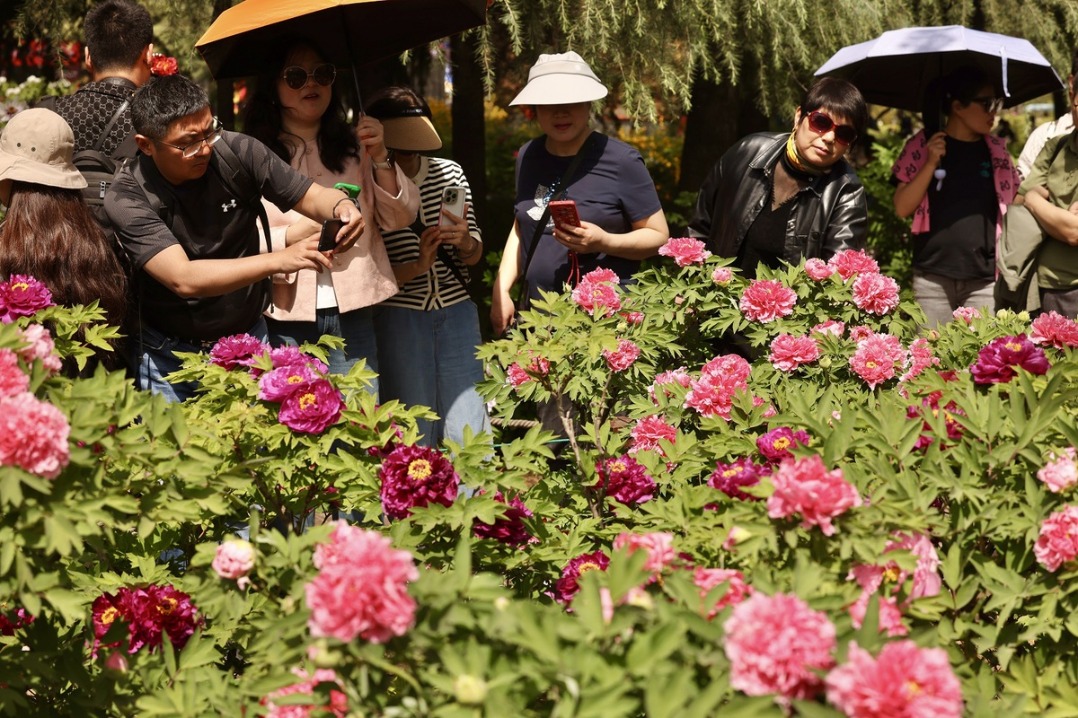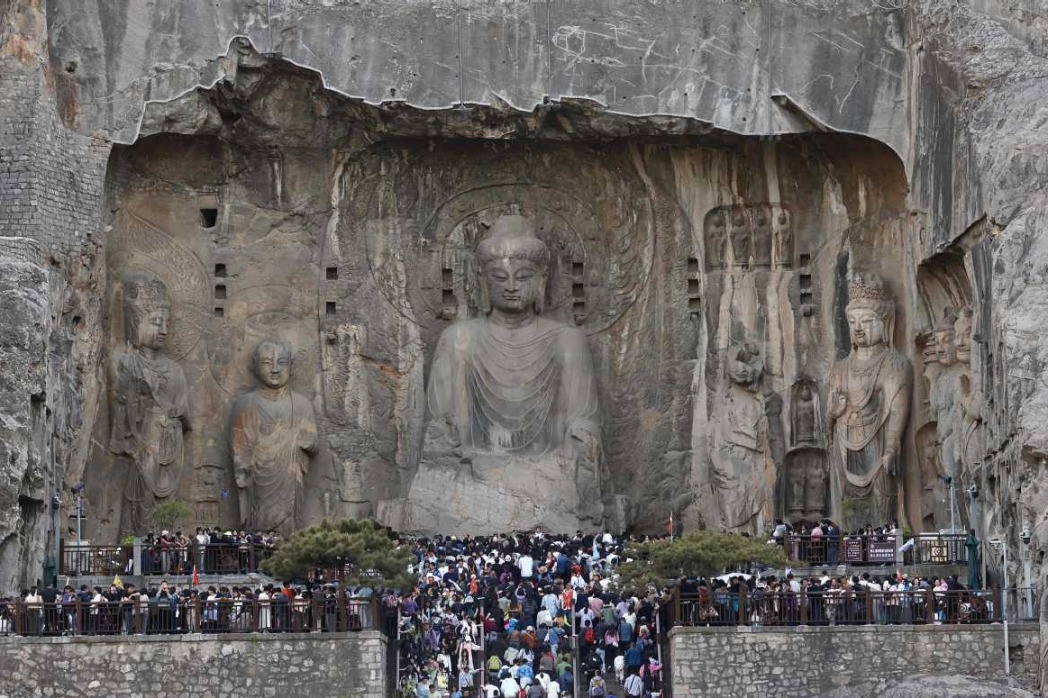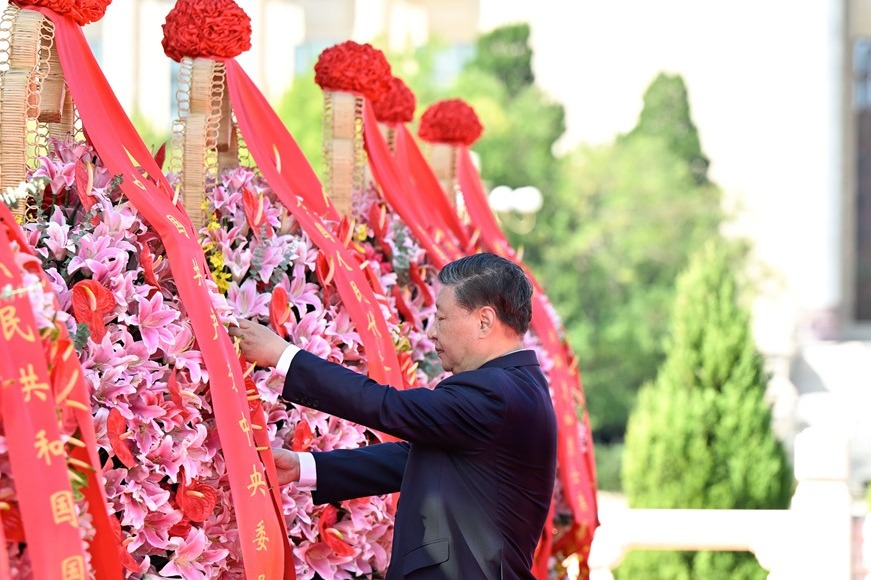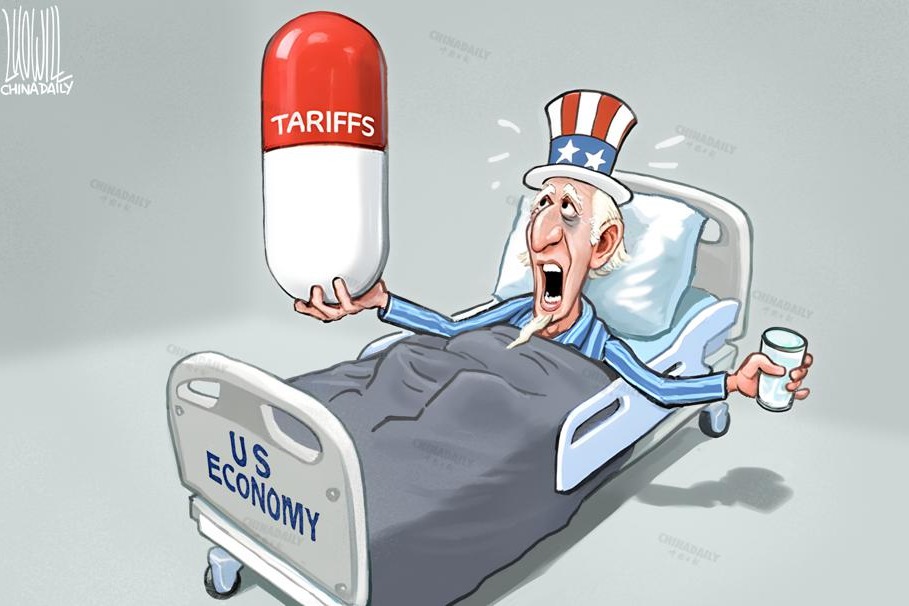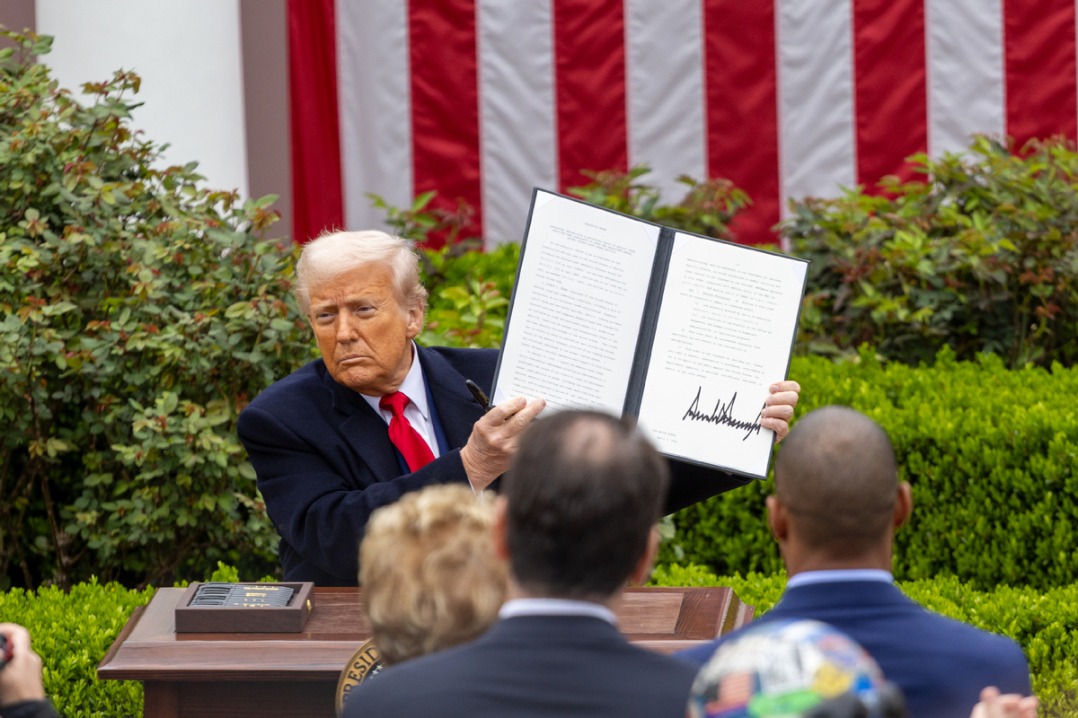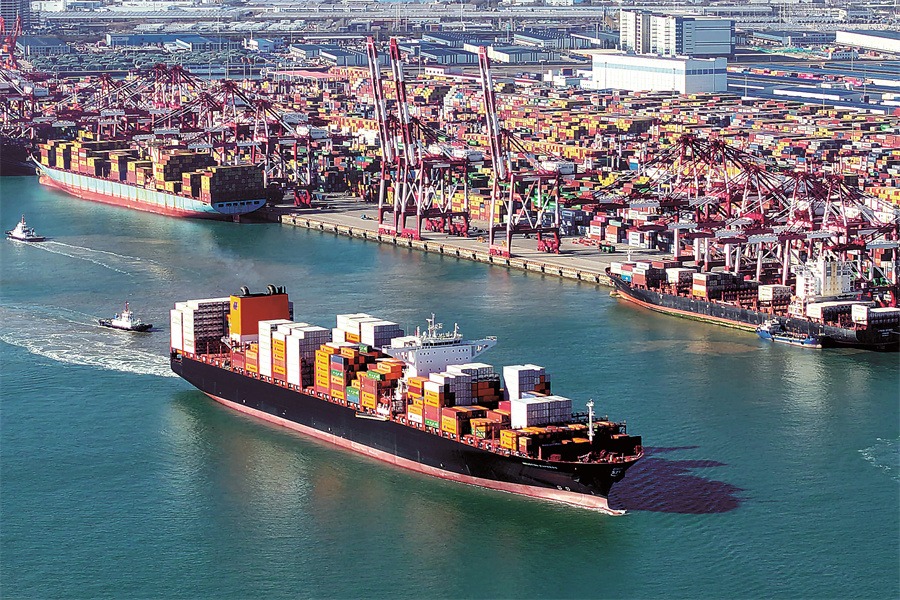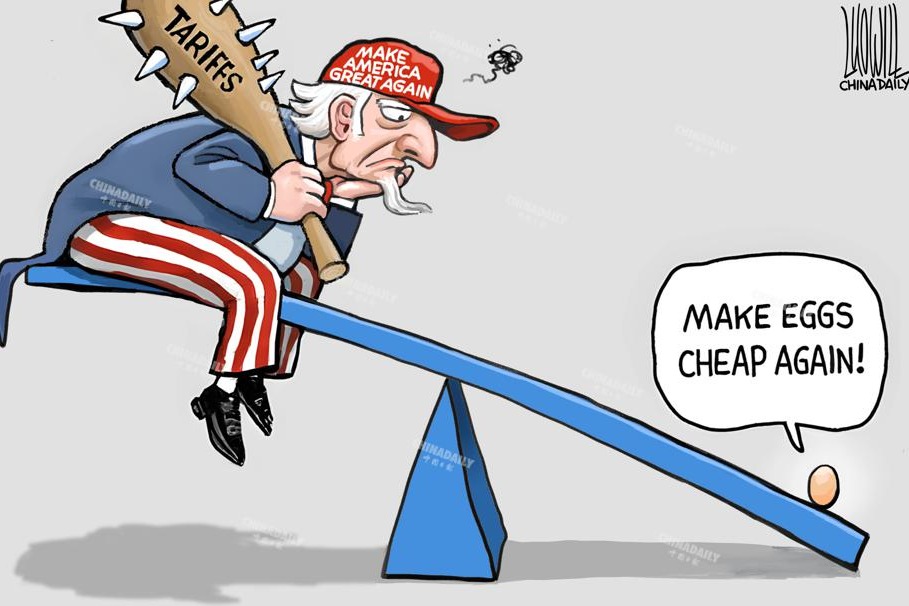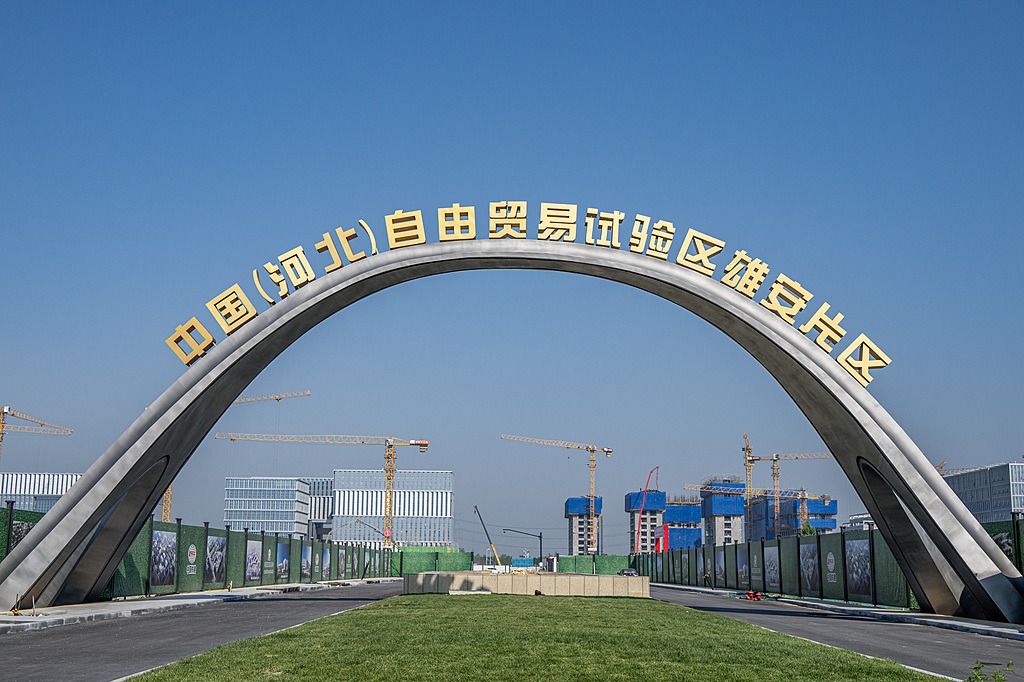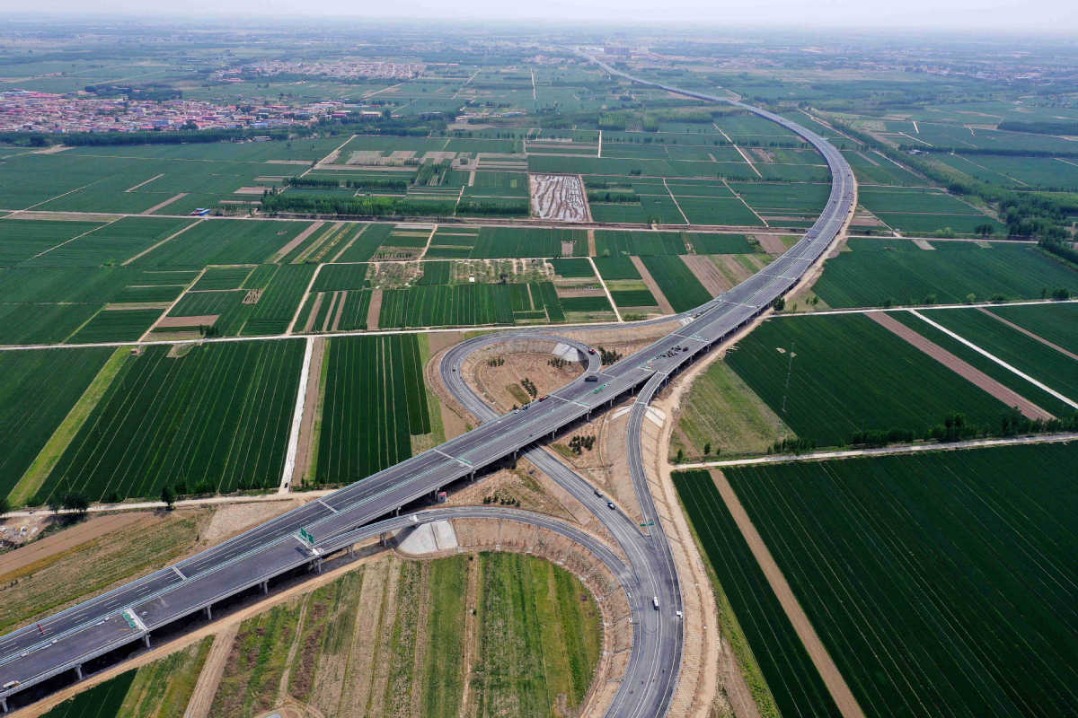Ushering in a new global order

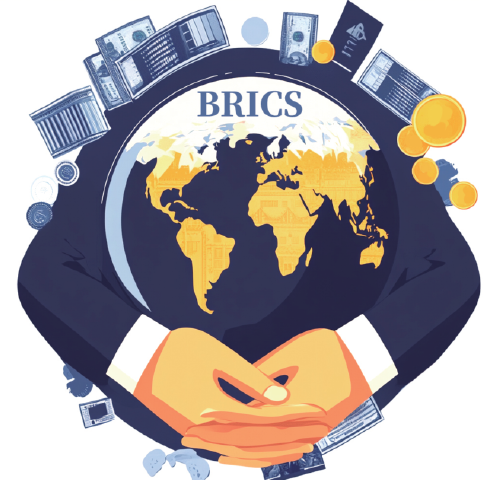
Continued expansion of BRICS promotes South-South cooperation and ensures that developing nations have a stronger voice in international decision-making
Over the past three decades, global geopolitics has undergone transformative changes.
The 1990s saw the end of the Cold War following the unification of Germany, the rise of the United States as the sole superpower, and significant political shifts in Africa, such as the end of apartheid.
The 2000s were shaped by the war against terror following the Sept 11 terrorist attacks on the US, China's economic ascent, the expansion of the European Union, and the global financial crisis.
The 2010s witnessed the "Arab Spring", the rise of populism, the growth of the BRICS bloc, and Africa's economic emergence. These trends have continued in the past decade with significant events such as the US-China trade war, Brexit, the COVID-19 pandemic, and climate change impacts. Africa also saw notable developments, including the establishment of the African Continental Free Trade Area and China's growing partnership. Collectively, these decades have reshaped the global landscape, highlighting the complex and evolving nature of international relations.
Despite these significant global events, the balance of power has remained skewed, with post-World War II structures placing the Global North at the center, led by the US and its allies through the Bretton Woods institutions. Responses to these global events were predominantly Western dominated, highlighting the need for a multipolar world with diverse sources of responses and solutions.
One of the powerful forces ushering a global multipolar balance against the long-aged bipolar status quo is BRICS. BRICS is an economic and political partnership established by Brazil, Russia, India and China, and later joined by South Africa, aimed at fostering mutual development and global influence.
After nearly 15 years, BRICS expanded its membership in 2024.And 2025 started with another significant addition, as Indonesia joined as a full member. As the largest economy and most populous nation in Southeast Asia, Indonesia adds substantial economic and geopolitical weight to BRICS. Joining the grouping enhances Indonesia's global influence, promotes South-South cooperation, and ensures that developing nations have a stronger voice in international decision-making. For BRICS, Indonesia's inclusion strengthens its presence in Southeast Asia, providing valuable economic partnerships and bolstering the bloc's efforts to foster a more inclusive global order.
In addition to full membership, BRICS has introduced a new category of partner countries, which includes Belarus, Bolivia, Cuba, Kazakhstan, Malaysia, Nigeria, Thailand, Uganda and Uzbekistan. These partner countries participate in BRICS activities and initiatives, although they do not have full voting rights. This remarkable expansion reflects a strategic push to balance Western dominance and create a multipolar world. By doubling its size with the addition of energy giants and emerging markets such as Iran, the United Arab Emirates, Egypt and Ethiopia, BRICS now represents major global energy producers and fast-growing markets. This expansion aims to enhance economic influence, provide new members with easier access to financing, and reform Western financial systems.
In the next few decades, we can expect BRICS to continue growing, potentially including more countries and diversifying its partnerships. The bloc may work toward a common currency, accelerating reforms in global financial mechanisms and reshaping economic dynamics. As BRICS strengthens its role in multilateral governance, it will likely influence institutions such as the World Bank and the International Monetary Fund, promoting a more inclusive global order through profound reform. To achieve these goals, BRICS members are expected to collaborate on various initiatives, including joint projects, technological advancements and contributions to the New Development Bank. Members should enhance trade and investment flows, promote sustainable development, and address global challenges such as climate change, energy security and public health.
Africa stands to benefit significantly from BRICS expansion. The inclusion of Egypt and Ethiopia as full members together with the long membership of South Africa, along with Nigeria and Uganda as partner members, opens up new opportunities for trade, investment and infrastructure development. This expanded network allows African nations to diversify economic partnerships, secure alternative financing sources, and leverage BRICS collective bargaining power for favorable terms in international trade.
Each member country brings a unique leverage. For instance, Ethiopia, as a founding member of the African Union and the United Nations, plays a pivotal role in Africa's development, leveraging its strategic location and large population to drive regional integration and economic growth through its peacekeeping missions as well as its ambitious infrastructure projects. As a host of the AU, Ethiopia's commitment to multilateralism expressed through its BRICS membership can be an asset for the fulfillment of the overarching goals of BRICS, benefiting not only the Global South but also the Global North.
To fully capitalize on the opportunities created by the expanding BRICS grouping, all the BRICS members should foster strong diplomatic and economic ties, enhance their trade relations, invest in joint infrastructure projects, promote cultural and educational exchanges, and support each other in international forums. By leveraging their collective strengths and addressing shared challenges, BRICS nations can drive sustainable development, innovation and economic resilience, creating a more balanced and inclusive global landscape. Additionally, member countries should prioritize policy reforms to improve governance, transparency and ease of doing business, making their economies more attractive for investment. By aligning their strategic interests with BRICS goals, Global South nations can better integrate into the global value chains, boost economic growth, and address key developmental challenges.
To ensure the sustained cohesion and achievement of objectives within BRICS, it is imperative to adeptly manage geopolitical tensions and harmonize the diverse economic priorities of its growing membership.
The author is a PhD student at Peking University, ex-state minister of planning and development of Ethiopia, and vice-chairman and Africa Chapter president of the World Rural Tourism Council. The author contributed this article to China Watch, a think tank powered by China Daily.
The views do not necessarily reflect those of China Daily.
Contact the editor at editor@chinawatch.cn.
















